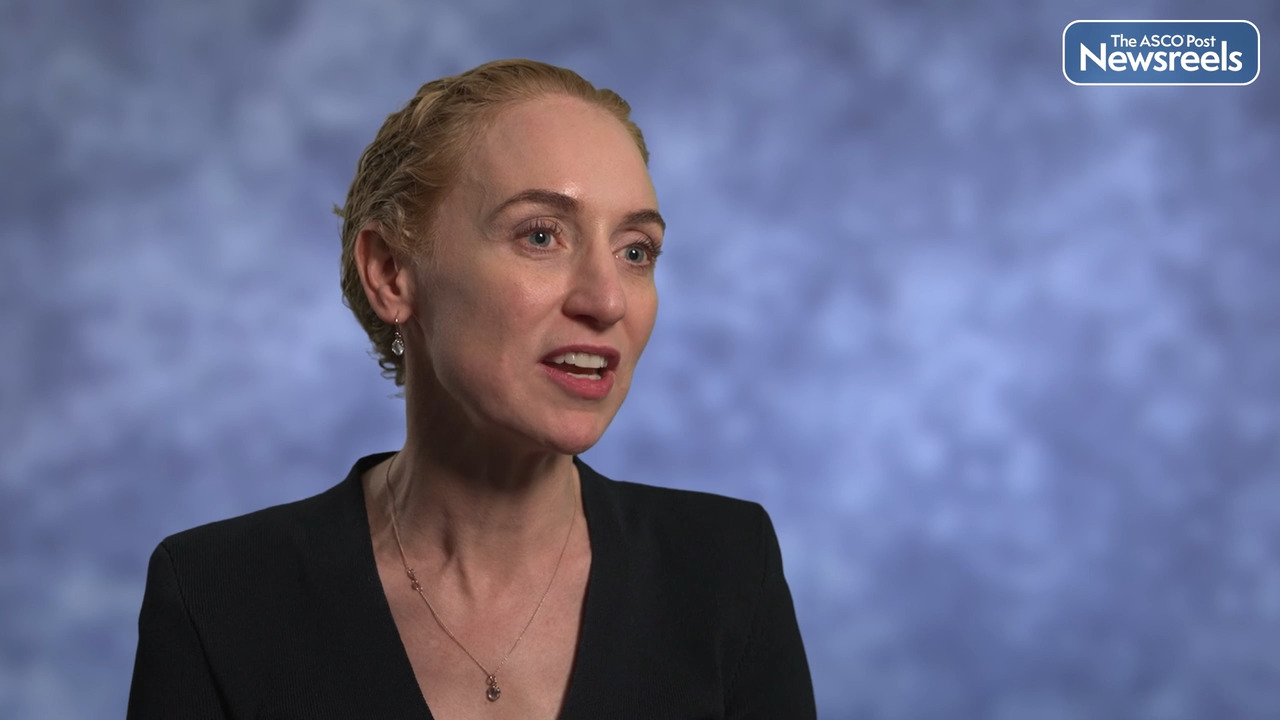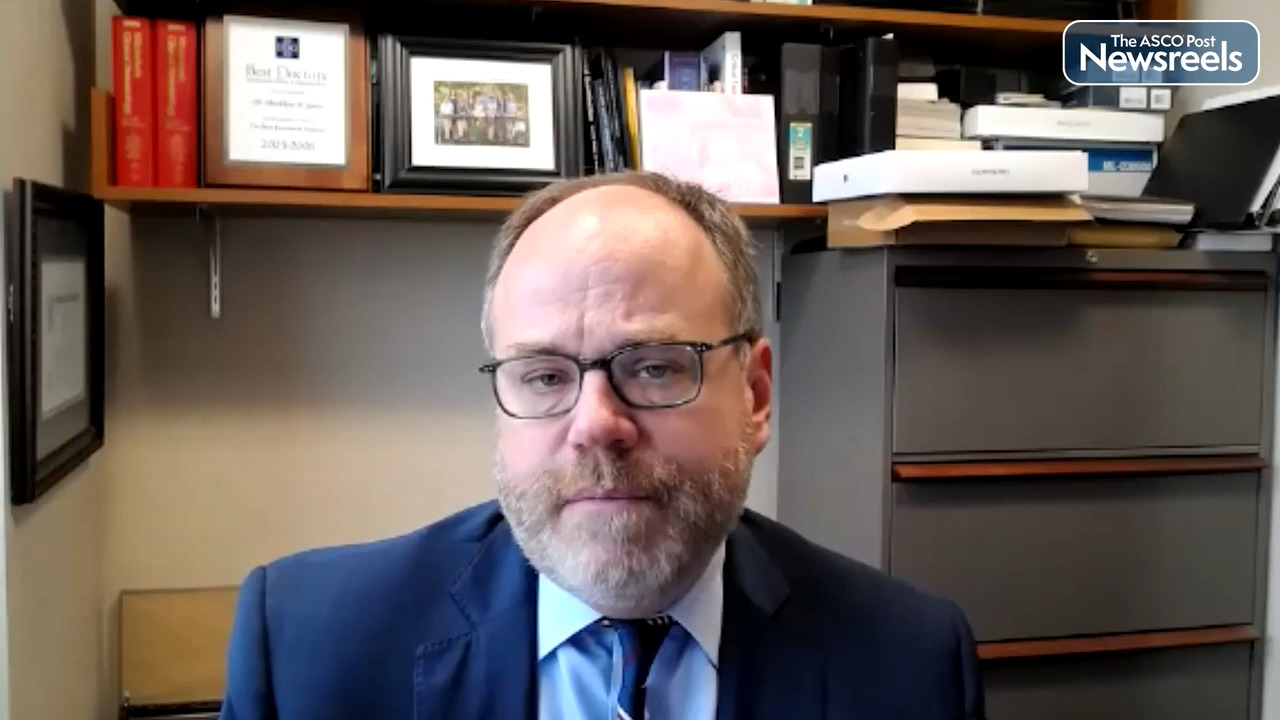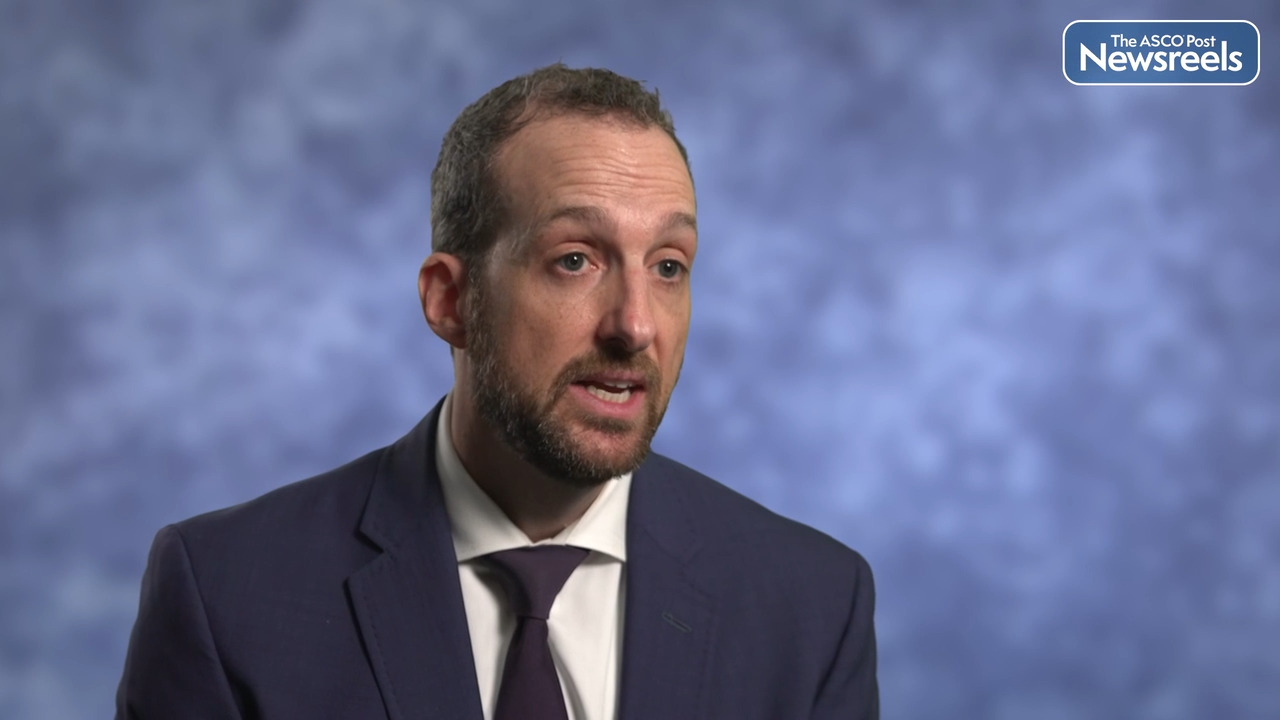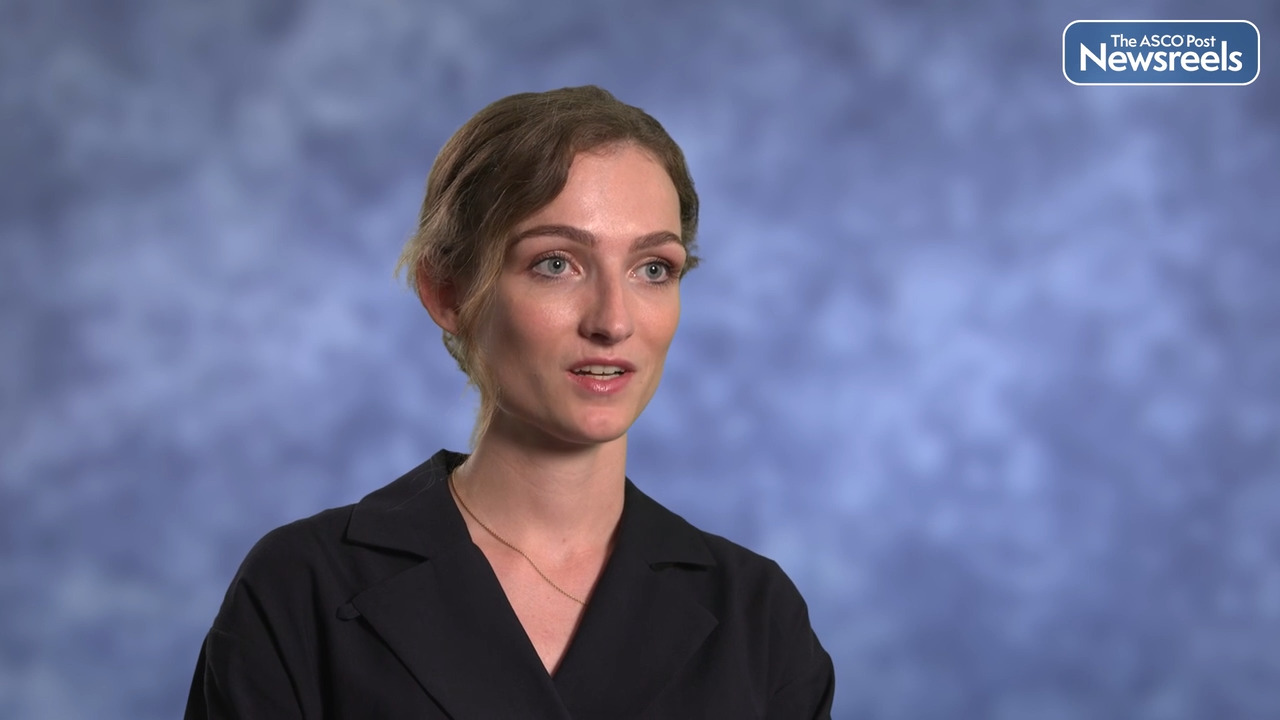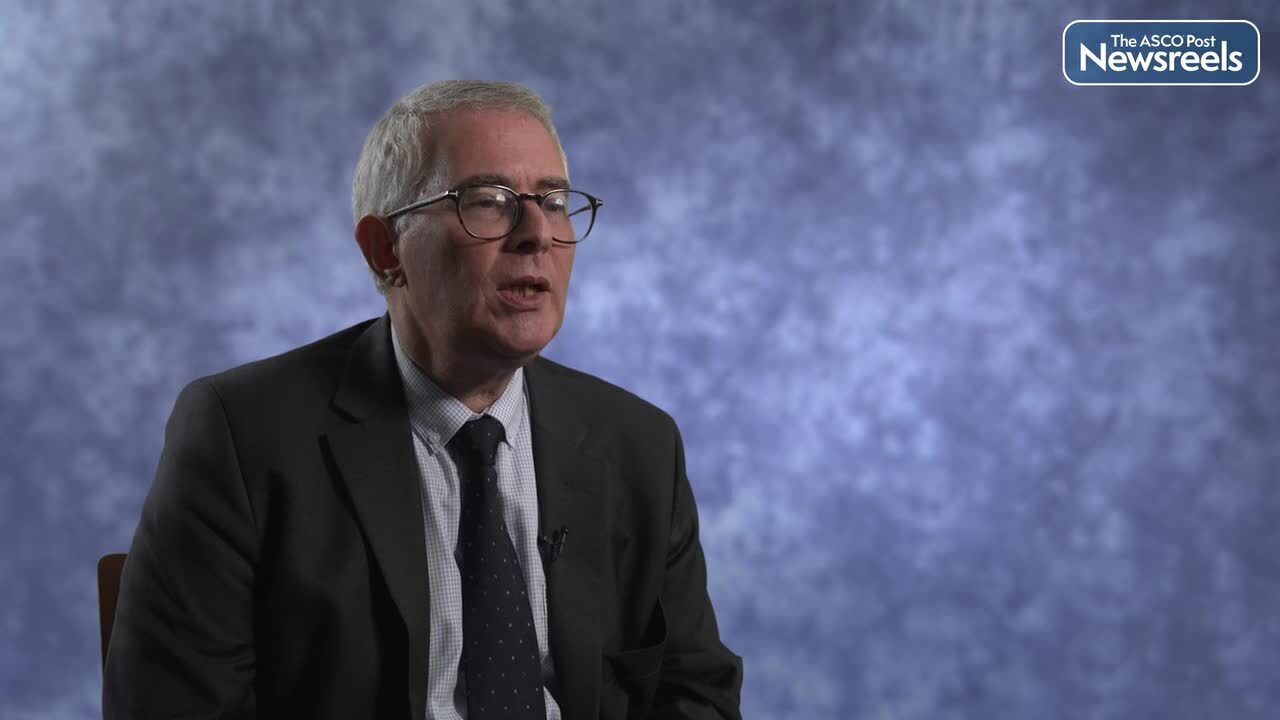John B.A.G. Haanen, MD, PhD, on Melanoma: Phase III Data on Treatment With Tumor-Infiltrating Lymphocytes vs Ipilimumab
ESMO Congress 2022
John B.A.G. Haanen, MD, PhD, of The Netherlands Cancer Institute, discusses recent phase III findings, which show that tumor-infiltrating lymphocytes (TILs) improve progression-free survival compared with ipilimumab by 50% in patients with advanced melanoma after not responding to anti–PD-1 treatment. Around 50% of TIL-treated patients had a response, and 20% had a complete response (Abstract LBA3).
Transcript
Disclaimer: This video transcript has not been proofread or edited and may contain errors.
At the ESMO Congress, I presented the results from the randomized controlled phase three trial comparing infusion with tumor infant lymphocytes to ipilimumab in patients with metastatic melanoma. The trial was designed for patients with cutaneous melanoma having failed at the maximum of one prior treatment. The majority, meaning almost 90% of the patients, had received prior anti PD one treatment when they went on the trial. Patients were randomized to receive either TIL treatment or ipilimumab. In total, 168 patients were randomized one to one, and the primary endpoint of the study was progression free survival by investigative review in the intention to treat population.
The results from this trial show a 50% reduction in risk of progression or death, in favor of the TIL treatment compared to ipilimumab. The median progression for survival for the TIL treat patients was 7.2 months compared to a 3.1 months for patients treated with ipilimumab.
When we look at the overall response rates, TIL compared much better than ipilimumab. We saw a 49% overall response rate for the TIL treat patients, 20% having complete remission. This compared to 21% for [inaudible 00:01:34] treated patients with 7% complete remission.
We did look at the overall survival and there was a trend for better overall survival for patients treated with TIL. However the study was not powered to show this overall survival. The median overall survival for the TIL treated patients was over 25 months compared to over 18 months. Therefore, the ipilimumab treated patients.
Side effects occurred in both treatment arms in all patients received that received TIL treatment. They had a grade three or higher adverse events. These adverse events could be attributed to the lymph repeating chemotherapy consisting of cyclophosphamide and [inaudible 00:02:16] or the high dose interleukin-2 that these patient received following TIL infusion.
These side effects had completely disappeared by the time the patients were released from the hospital, and there were no long term problems seen in these patients due to side effects. Also, health related quality of life, scores were better in patients treated with TIL compared to ipi, and this was maximum around 18 weeks after treatment. It was still visible at around one year after treatment.
So in conclusion, this is the first randomized control trial with a cell therapy in a solid cancer. In this case, treatment with TIL compared to ipilimumab for patient with advanced melanoma. And there was a clear difference in progression for survival and overall response rate in favor of the TIL treated patients and their side effects were manageable, and health related quality of life was better for the TIL treated patients.
So we think that TIL therapy could become a new treatment option for patients with metastatic melanoma. In future research, we will look at the infusion products, and also look for correlations between the cells in these infusion products and outcome. And hopefully we will be able to share those results at a later time point.
The ASCO Post Staff
Georgina V. Long, MD, PhD, of the Melanoma Institute Australia, discusses results from the CheckMate 915 trial, an analysis of the pretreatment circulating tumor DNA, along with other clinical and translational baseline factors, and their association with disease recurrence in patients with stage IIIB–D/IV melanoma treated with adjuvant immunotherapy (Abstract 788O).
The ASCO Post Staff
Matthew P. Goetz, MD, of Mayo Clinic, discusses recent data from the MONARCH 3 trial of patients with advanced hormone receptor–positive, HER2-negative breast cancer. The study, a second interim analysis, showed that longer overall survival was observed in both the intention-to-treat group as well as in the subgroup with visceral disease. However, neither met the threshold for statistical significance, and further analyses are planned when more data can be reported. (Abstract LBA15).
The ASCO Post Staff
Neil D. Gross, MD, of The University of Texas MD Anderson Cancer Center, discusses data from a phase II study, which showed that neoadjuvant cemiplimab-rwlc in patients with stage II–IV (M0) resectable cutaneous squamous cell carcinoma is active and may enable function-preserving surgery in some cases (Abstract 789O).
The ASCO Post Staff
Marinde J.G. Bond, PhD Candidate, of the University Medical Center, Utrecht, discusses phase III findings from the CAIRO5 study of the Dutch Colorectal Cancer Group, the first such trial in defined subgroups of patients with initially unresectable colorectal cancer liver metastases and left-sided and RAS/BRAF V600E wild-type tumor. The study compared FOLFOX/FOLFIRI plus either bevacizumab or panitumumab (Abstract LBA21).
The ASCO Post Staff
Gérard Zalcman, MD, PhD, of France’s Bichat-Claude Bernard Hospital, Assistance Publique–Hôpitaux de Paris, discusses phase III results from the IFCT-1701 trial, which explored the questions of whether to administer nivolumab plus ipilimumab for 6 months or whether to prolong the treatment in patients with advanced non–small cell lung cancer (Abstract 972O).
